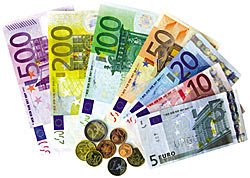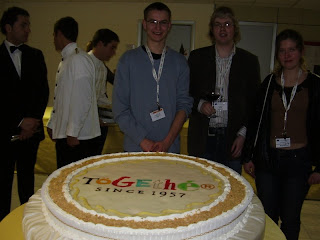A few days ago two German journalists introduced their book "Raumschiff Brüssel - Wie die Demokratie in Europa scheitert" (translation: "The spaceship Brussels - How the democracy in Europe degenerates"). In general this 400-paged book speaks about what is wrong with the EU-system (with it’s bureaucracy and governance). The authors, Andreas Oldag and Hans-Martin Tillack, have worked in Brussels as newspaper correspondents and assumedly are quite adequate to write a book like this. The following presents a short overview of the content of this book and I`ll add some of my personal opinions too. I haven’t actually read the book, but I got the general information from a book review (the link is below the text).
The authors point to the fact that the domination of the EU is not criticized enough and there is also no political opposition that would keep an eye on the leadership of the organization heeding attention to the drawbacks. The book says: The criticism and the opposition might always not be pleasant, but without them the EU is in great danger. I think, that there is lots of critique of the EU, no need to complain about its deficiency. How much do the critics know about what is going on behind the “closed doors of EU” is entirely different story: things to criticize, some say aren’t publicized. And how would the political opposition look like? Should there be a party-system in the EU? Broadly speaking, I think, that there should be some kind of an opposition in Brussels; which kind – I don’t know.
The title of this book compares Brussels to a spaceship alluding to EU-s government’s (bureaucracy’s) complexity and closeness – not enough information about what’s going on there comes out in the open. Another thing that causes dissensions is the centrality of Brussels, which is claimed to be too big: 50% of EU-s legislation is made in the capital of Belgium. As a negative aspect the authors accentuate, that the officialdom is considered to be more important discussing problems than the euro-attorneys. The attorneys are re-elected in every five years, more important officials are permanent (connection with a spaceship – almost no one departs and there are no new entrants). These facts create an effect of one ruling “family”. To illustrate this, the authors give an a fact, that in the first half of the year 2002, the attorneys have only voted and approved only 76 decisions, as their team pushed through 1090!
As I understand all the problems described in the previous paragraph are caused by the complexity and unclear structure of the system. All that enables the so-called EU-s “gray cardinals”, who hide themselves in the maze of bureaucracy, to act and to make laws that fit with their point of view. As an example of bureaucracy: every month appreciably 3200 boxes of official documents are truck-transported between Brussels and Strasbourg. Consequently EU-s institutions must become more transparent!
One of the main ideas (that would help EU to endure) of this book is: “The Europe is too important to leave it to the career-Europeans. I anyhow agree with that: the EU should not be only a playground for a bunch of career people; to ensure, bigger masses might/should be roped in discussing EU-s problems.
Having said that one should not forget to evince critics towards the book, because its purpose is to show the darker side of this economical union. So it could cause subjectivity and the positive side of EU might be forced in the background. For further information (as I only gave a short overview of “Raumschiff Brüssel – Wie die Demokratie in Europa scheitert”) click on the link below, or acquire the book.
Ants Siim

